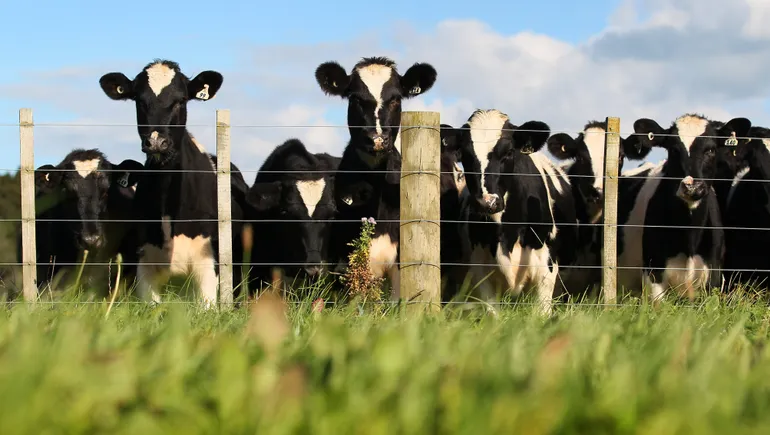Person tests positive for bird flu after contact with infected dairy cows in Texas

A person is being treated for bird flu following contact with dairy cows presumed to be infected with the virus in Texas, state and federal officials said Monday.
The patient’s primary symptom was conjunctivitis, or eye redness. The Texas Department of State Health Services reported that it believes the human case is linked to recent detections of highly pathogenic avian influenza in dairy herds and urges health providers to be vigilant for people with signs or symptoms of the virus.
The Texas health department is investigating the ongoing situation with local, regional, state and federal partners. The patient was told to isolate and is being treated with an antiviral drug for flu, according to the Centers for Disease Control and Prevention.
Avian influenza, often spread by wild birds, rarely has been transmitted from person to person. Prior to this incident, the last case was detected in Colorado in 2022 by a person who assisted with the depopulation of poultry that tested positive for the virus.
While risk of bird flu spreading to the general public is low, people in close contact with animals suspected of carrying the virus have a higher risk of infection, according to state and federal agencies. There is also no risk of bird flu entering the commercial milk supply due to regulatory practices and pasteurization, which would kill any traces of the virus.
Meanwhile, the situation is changing rapidly for livestock producers. Early last week, the U.S. Department of Agriculture confirmed avian influenza in two dairy herds in Texas and two dairy herds in Kansas, after locals reported their cattle exhibiting decreased lactation, low appetite, fever and other symptoms.
By Friday, a dairy herd in Montcalm County, Michigan, had tested positive for the virus after receiving cattle from an infected farm in Texas. The cattle from Texas were asymptomatic and exhibited no illness during the point of sale or transit, according to the Michigan Department of Agriculture and Rural Services.
In addition to the latest confirmed cases, there are presumptive positive cases at dairy farms in Idaho, New Mexico and Texas. The USDA said it will provide updates when more cases of avian influenza in cattle are confirmed.
Up until this point there have never been detections of bird flu in cattle. However, in recent years, the virus has ravaged commercial poultry and egg farms, resulting in the deaths of more than 58 million birds, which disrupted egg and turkey markets between 2022 and 2023 as inflation and geopolitical tensions rose following the pandemic.
Source: fooddive.com

